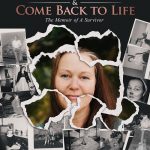The ‘Firsts’ are never easy, but what About the Seconds and Thirds?
By
Paula J Roscoe
You may hear people talking about their ‘firsts’ and you may not give it a second thought, until it happens to you. The first anniversary, the first birthday, the first Easter, the first Christmas, the first New Year, the first holiday, the first visit to a place that has fond memories, The first time you drive alone in the car, the first time you step into an empty house, the first time you visit friends, alone. You see, the ‘first’ can be anything that you have to experience after the death of a loved one, and none of them are going to be easy.
People will tell you the first year is the most difficult, but having listened to hundreds of grieving clients, I don’t totally agree with that. The firsts are reminders that they are no longer there to share that experience, but when it then moves into the second or third year, the reality of your situation and their death, really begins to sink in because you move from self preservation into Reality.
That being said, EVERY milestone can be difficult depending on each individual and anything big or small can bring a fresh wave of grief, sorrow and anguish that you have a life to live without them. The ‘firsts’ remind you that these are merely the firsts to deal with, and many more will come.
Navigating these moments is crucial to begin the healing process; however that might look for you, and begin to settle into what will become your new ‘normal’. Along the road of grief you will have good and bad days, happy and sad days. You will experience moments of deep darkness and feel a need to go inward, and you will have moments of wanting to be with the world and enjoy being alive.
Everything you feel is acceptable and it’s important NOT to judge yourself harshly in any way. Never compare yourself to how someone else grieved; because that is a road that leads to madness, guilt and shame. YOU cannot know their thoughts, feelings and actions, and you cannot know what is happening in their life; as they cannot know the full extent of what is happening in your life.
Needing support is okay while grieving; it isn’t weak or pathetic; in fact, it’s one of the strongest things you can ask for when grieving. Noticing and acknowledging that you need help to resolve this grief wound is an enormous step and one that should be accepted. Every single person on this planet will grieve at some point, and every death will cause a different reaction, a different thought, a different feeling and emotion.
Some practical tips and advice that can help you during this time are:
- Seek professional help from someone who has experience in helping grief and trauma. If you feel counselling is enough for you, there are plenty of charities that offer this. If you want more than mere counselling that heals your mind, body and spirit and brings you back to life, then contact me for a FREE call to see if we’re a good fit for my programme.
- Create a memory box – now I say ‘box’ but in my time as a grief therapist I have seen memory bags/boxes/bins/gardens, even a memory shed! Fill it with good memories and look at them often.
- Create a new tradition in honour of the person who died. Light a candle on their birthday or anniversary, do something for a charity in their name. Organise a family get together once a month and create a fun day. Cook meals, learn a new craft, it can be anything. Open up your world.
- Taking care of you is vital. Make sure you prioritise yourself and all that you do lifts your mood, nurtures your mind, body and spirit, and your wellbeing is paramount. Things like, gentle exercises, eating healthy, restful sleep or relaxing, meditation and doing small activities that raise your vibration.
- Acknowledge your emotions and give yourself permission to feel them and grieve. It is important to acknowledge that you will feel a variety of emotions and it could last many years if you do not have help and support to heal those wounds.
- Be honest with yourself and realise that this time is going to be difficult, but you can and will work through it and although it may not feel like it now, there is light at the end of this dark tunnel.
- Identify the triggers that you know, or expect will be hard for you such as birthdays and special days. Make preparations to support you on those days, whether you feel you just want to stay in bed, alone with a heaped pile of old films, a box of tissues and your weight in chocolate, or you know you want to get out into nature and be among the trees, or visit a busy city to be among people? Whatever you feel, go with it. You don’t have to explain it to anyone.
The most important thing is you. YOU are just as important as the person who died and it’s important that you acknowledge that you are loved, and you are loving, that is why you are hurting.
With love
Paula, Grief Guru & International award-winning Author, Spiritual Coach & Angel Voice Healer

